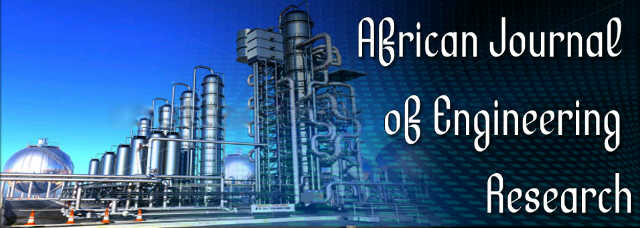A review of engineering education at the University of Zimbabwe
Mathew T. Mamina and Rutendo MagangaAfrican Journal of Engineering Research
Published: December 17 2019
Volume 7, Issue 4
Pages 112-128
Abstract
Zimbabwe’s industrialization thrust calls for skilled graduates particularly in the engineering disciplines. The government of Zimbabwe, in its endeavor to facilitate value addition and beneficiation across multiple sectors, has acknowledged the lack of technical skills as a drawback to industrialization on several occasions. As a means to address the skills gap, the 2017 Ministry of Higher and tertiary education transitioned from the education 3.0 model focused on teaching, research and community service to an education 5.0 model that incorporates two additional elements of innovation and industrialization. The major objective of the model is to industrialize and modernize Zimbabwe through science and technology with engineering education playing a critical role on the innovation and industrialization pillars. The status quo in Zimbabwe is that conventional instructional methods are being used to teach engineering related subjects whereas research has established that over the past three decades, engineering education has transitioned towards outcome oriented methods of instruction to improve graduate students’ skills and meet industry demands. For instance, higher education in the United States, Europe, Asia, Australia, and South America has shifted from conventional instructional methods towards an outcome-oriented and student-focused Competency Based Learning (CBL). According to the 2018 minister of higher and tertiary education, the Zimbabwean education system has failed to foster practical application of acquired knowledge and industrial development, an issue addressed by CBL. In line with the objectives of education 5.0, this study reviews engineering education at the University of Zimbabwe and recommends necessary adjustments to address the growing need for competent engineers.
Keywords: Engineering education, education 5.0, interdisciplinary education, competency based learning, industrialization.
Full Text PDFThis article is published under the terms of the Creative Commons Attribution License 4.0

